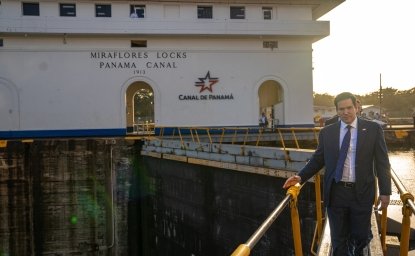Environment in the U.S. Security Debate: The Case of the Missing Arctic Waters




As also occurs with global warming or Russia’s transition to “democracy,” the U.S. move towards an increasingly extended security praxis is accompanied by uncertainty as well as complexity. Indeed, the whole project has a futuristic air, insofar as it is a purposive venture. To help situate an inquiry that otherwise risks becoming vaporous, this essay asks whether and if so how the United States might employ new understandings of security in the management of Arctic waters issues, and in responding even more particularly to the prospect of intensified use of Russia’s Northern Sea Route for the transport of hydrocarbons and other bulk cargo. Here, too, the subject is futuristic in that there is little or no American interest in the circumpolar North. By no means is this to suggest that the United States is not an Arctic country. Decidedly it is. But Americans are quite unaware of their capacity to act in this part of the world. The Arctic Ocean, for its part, is missing in the American view of the globe, and hardly anyone has even heard of the Northern Sea Route. Appropriately enough for an inquiry into the evolution of an extended U.S. security praxis, in the Arctic we find ourselves at the beginning of a process in which ideas drawn from other places and issue-areas seem likely to predominate in improvised responses to unexpected problems.

Since its inception in 2017, the Polar Institute has become a premier forum for discussion and policy analysis of Arctic and Antarctic issues, and is known in Washington, DC and elsewhere as the Arctic Public Square. The Institute holistically studies the central policy issues facing these regions—with an emphasis on Arctic governance, climate change, economic development, scientific research, security, and Indigenous communities—and communicates trusted analysis to policymakers and other stakeholders. Read more


The Environmental Change and Security Program (ECSP) explores the connections between environmental change, health, and population dynamics and their links to conflict, human insecurity, and foreign policy. Read more


